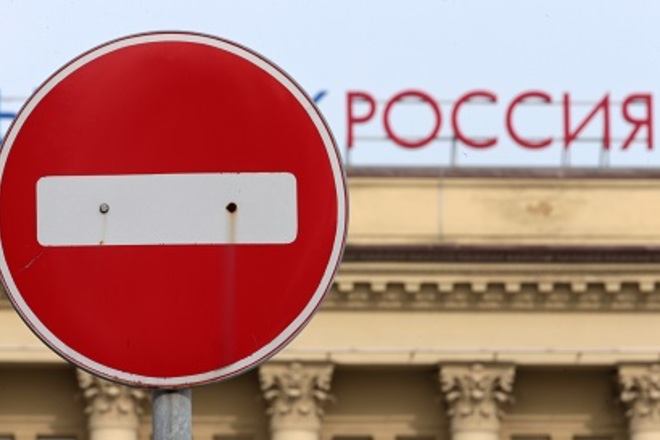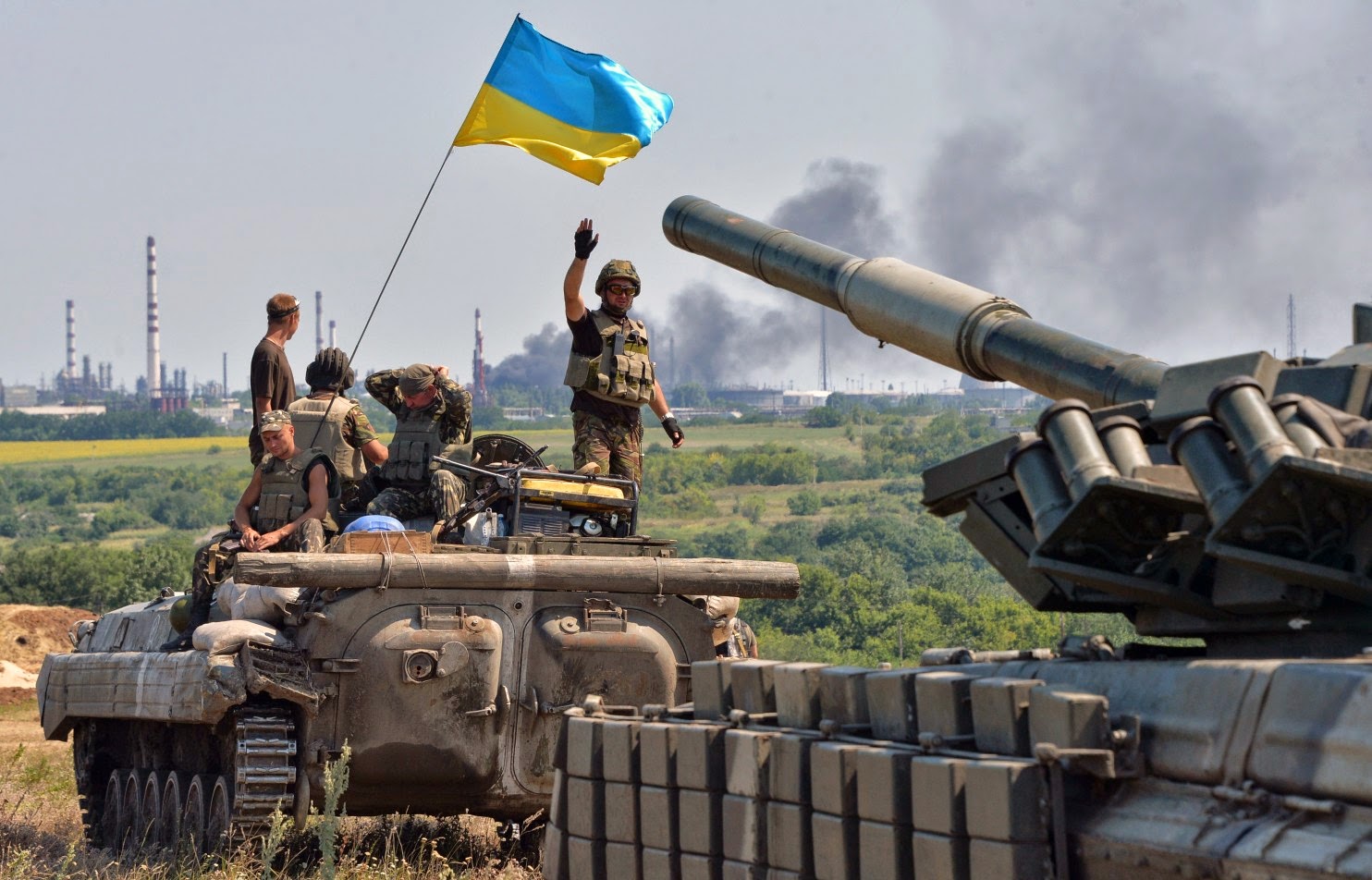Ukraine is, perhaps, the first European country that pays a blood price for entering the EU. Real battles of protesters with police and internal troops are taking place in the central Kyiv now. During a week-long clash, protesters have been throwing Molotoff cocktails, bricks and fireworks. Special troops Berkut have replied with aiming fire towards activists and journalists (journalists were particularly targeted) using traumatic arms, often shooting into people’s heads and eyes. On January 22nd two persons died. Some people lost their eyes. That was the first blood shed in the Ukrainian revolution.
No one was ready for these developments. For a couple of years Ukraine was preparing to sign an Association Agreement with the EU, including its free trade area chapter. When President Yanukovych - corrupted, badly educated and non-democratic – took office, Ukraine’s EU integration has started to be advancing even faster than before. Many were wondering, how a man who prefers enriching himself and his greedy family using national budget money, building palaces and developing businesses of his two sons, can aim at joining EU, where all these actions would be considered to be a crime. Despite these doubts, people were largely confident that on November 29, 2013, Yanukovych would sign the Association Agreement with the EU in Vilnius.
But one week before the summit, Yanukovych, acting through his Prime Minister Mykola Azarov, put the EU integration process on hold. In a response to this move, in the evening of November 21, about a thousand of people went to the Independence Square (Maidan Nezalezhnosti) to manifest their protest. This protest was launched not by the political opposition, but by the leaders of civic movements. Mustafa Nayem, a famous Ukrainian journalist with Afghan origins, called through Facebook to take on streets. Leaders of the three opposition parliamentary parties (Vitaliy Klitchko, Arseniy Yatsenyuk and Oleh Tyahnybok), however, were not among the first protesters. At the beginning of the protests, journalists and activists were standing on Maidan, while supporters of opposition political parties stayed 200 meters away, on the European Square. Both camps joined their forces on the November 29.
On the same day, November 29, the EU’s Eastern Partnership summit took place in Vilnius. Up to this moment Ukrainians were hoping that Yanukovych would revise his decision and would finally sign the EU agreement. But he didn’t. Opposition addressed the crowd after this news, but then left the Maidan, creating the impression that the protests were over. People were disappointed. But on the same night, police, with unprecedented cruelty, dispersed protesters (mainly students) who stayed on the Maidan during the night. They were severely beaten by police batons, followed through the streets of Kyiv, and smashed further with the batons and boots. Tens of thousands of outraged people took on streets of Kyiv on the next evening.
After this attack, the police, following instructions of the authorities, used force twice. The first act of violence happened near the Presidential administration’s building on December 1st, when the “Berkut” (the police special unit) reacted cruelly on the attack of radical activists. Dozens of peaceful citizens and journalists were crippled and arrested during the dispersion. Journalists were apparently among the main targets: neither helmets, nor clearly marked press vests helped them avoid police beating.
Second attempt to apply violence was made in the night of December 11 when police tried to disperse the Maidan. Thousands of people have stayed on Maidan days and nights without exerting any violence towards police but only building barricades on the perimeter and setting up food supplies and ensuring security. Maidan existed thanks to money provided by people of Kyiv, including businessmen, and not by western funds, contrary to a cliché.
Assistant Secretary of State at the US Department of State Victoria Nuland and EU High Representative for Foreign Affairs and Security Policy Catherine Ashton were in Kyiv on December 11. Both diplomats came to resolve the political crisis, but Yanukovych decided to disperse peaceful protesters in their presence, which shocked the international community.
Again, the attack was explicitly brutal. Yanukovych, however, didn’t manage to push people away from the square. Only threats of sanctions which were announced by US Senator John McCain who visited Kyiv, restrained Yanukovych dictatorship practices for some time.
However, facing Maidan’s decisiveness, on January 16 the Ukrainian parliament voted, breaking all the legal procedures, for the set of laws which limit the freedom of speech and movement. The laws banned walking in helmets, or moving in the raw of over 5 cars; they also strengthened responsibility for defamation, which had a direct negative effect on the media. Voting with their hands (which no one counted thoroughly), instead of using an electronic voting system, the ruling party MPs strengthened responsibility for breaking the new laws, putting many people in the country under a threat of prison terms.
On January 20th, when it looked that further protests were hopeless, activists who lost trust to opposition politicians’ capacity to achieve Maidan’s major goals - Yanukovych dismissal, termination of arrests, beatings, and kidnapping of people – came face to face with the police and used the only weapon they had: bricks from the street. Police responded with fire. Two people were shot dead on January 22nd. Three more were found dead after kidnapping and tortures. Ihor Lutsenko, one of the kidnapped activists who survived, said that the government is using the following practice: activists are kidnapped, taken to the forest, tortured, and given to the police. People are still being kidnapped these days. The location of Dmytro Bulatov, leader of the Automaidan (a civil movement of car owners which arranges pickets, including those of palaces of President Yanukovych, interior minister Zakharchenko and oligarchs) is still unclear. Another activist of the Automaidan, Oleksiy Hrytsenko, says that kidnapping is performed by gangsters following instructions of the authorities.
People who have been standing day and night on Maidan after two rounds of the negotiations with Yanukovych banned opposition from continuing negotiation process, reasonably thinking that current President is cheating on his negotiators, as he did repeatedly before. Last week, leaders of the opposition, despite hesitations but under pressure of the voters, agreed to head the protest movement which radicalized without them and is expanding through the country with a great speed (citizens captured government administrations in a number of regions). It is impossible to say who really heads the protest throughout the country. But it is certainly people’s uprising.
Nobody is able to point at a plausible solution. Voluntary resignation of the President and new presidential and parliamentary elections could be an option, but the President is not going to accept it now, which means that the confrontation will be getting stronger. Meanwhile, US and EU, possible peacemakers, play the roles of silent observers. Vladimir Putin, Russia’s President, can consider himself a winner in a battle for influence in Europe, after he pushed Yanukovych to refuse from the EU association, blackmailing Ukraine by closing Russian border for Ukrainian goods. Ukrainians, however, are firmly opposing to these developments.
Ukraine was not a country that paid the price of human liv
es for its independence from USSR. Compared to the dramatic events in Lithuania, Latvia, and Estonia in 1990 Ukraine`s exit from the Soviet Union was less tragic. But, no doubt, Ukraine is the first country on EU’s Eastern border that takes such a long and difficult way out of its Soviet past, trying to become part of the European society, not only former USSR republic. In Ukraine, many consider EU membership and independence from Russia as equivalent, and as a guarantee of never going back to the communist past.
Europe should know, therefore, that today Ukrainians are ready to die (without exaggeration) having two flags in their hands, those of Ukraine and of the EU. However, the EU does not seem to understand this clearly now.
Andriy Chernikov, Kyiv.
Source: https://www.facebook.com/eurolution





